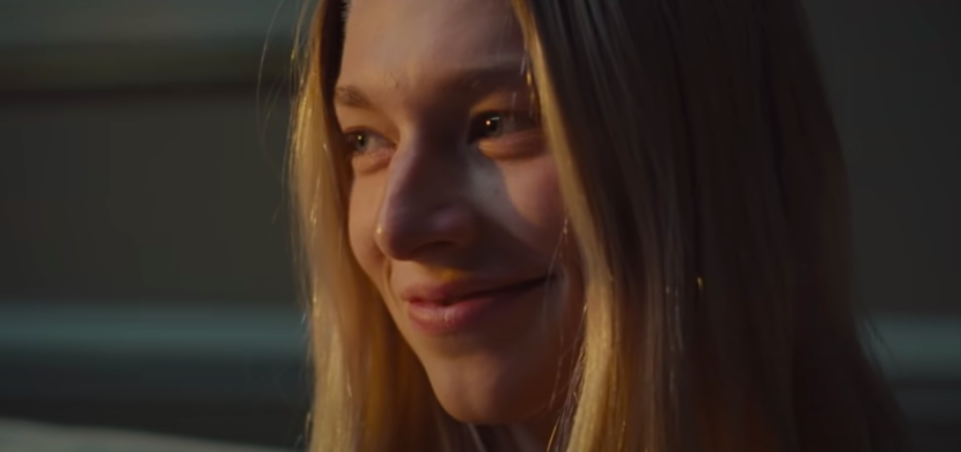The latest episode of Euphoria, “Fuck Anyone Who’s Not a Sea Blob,” aired Sunday night on HBO, just in time to refresh fans with new content for the widely popular TV series.
This episode is part two of the short series director Sam Levinson created as a bridge between season one and season two, after the second season’s production was postponed due to the coronavirus pandemic. The first episode in the series, “Trouble Don’t Last Always,” aired in early December and focused on the experience of Rue (Zendaya) after Jules (Hunter Schafer), her best friend and love interest, left her at a train station in the process of running away at the end of season one.
This episode focused on Jules’ experience after the fact. It also added many new dimensions to her character and opened up a discussion about femininity — all while using a dreamy color scheme, music and montages to pull fans back into the world of Euphoria.
In fact, the episode opened with a close-up of Jules’ deep blue teary eyes, and within her eyes, a montage of her time with Rue throughout the first season while the hauntingly beautiful song “Liability” by Lorde played in the background.
[Hollywood is elevating video games into an art form]
Much like Rue’s episode, this one centered around a conversation between Jules and just one other person: her therapist (Lauren Weedman). However, there were significantly more scene changes and flashbacks than in the first episode.
The conversation in the first episode was about racism and allyship, among other topics such as mental health. This time, the conversation was about the performance of femininity.
Jules expressed to her therapist that she felt she was framing her womanhood around men and their desires and that, as a transgender woman, she tried to conquer femininity but ended up being conquered by it instead.
One of the most powerful moments of the episode occurred when Jules gave her monologue comparing the strength and beauty of the ocean to femininity while describing the fear she once had of male puberty. The camera cut to short scenes of Jules swimming at the beach and being splashed by waves as a choir of opera singers uplifted the strength of the speech.
The episode was based on a poem Schafer wrote about femininity and the ocean, Levinson said in an interview with GQ. This scene in particular clearly speaks to that poem, and it is done with a creative poise that is hard to beat.
The episode also took a deeper dive into Jules’ side of the story. Jules talked about the pure love she felt for Rue but also expressed her feelings of defeat, anger and fear after leaving Rue at the train station.
Jules’ struggle to accept her mother’s addiction and reconcile with her past was discussed in the episode, allowing viewers to make clearer conclusions about her behavior toward Rue in season one and giving a more complete answer as to why she ran away.
[10 albums to look out for in 2021]
In the GQ interview, Levinson said it was “appalling” that so many people saw Jules as a villain after the first season, and he wanted to take time to explain her side of the story. This episode goes above and beyond that hope, and reveals layers to Jules’ character that audiences never saw before.
One of these reveals happened when Jules broke down and started sobbing while talking about her regret for leaving Rue behind. It’s hard not to shed a few tears and feel for Jules in that moment. She beautifully described how Rue always saw her without judgment and accepted her for who she was. Jules communicated her anger toward Rue’s addiction, but explained it never stopped her from loving Rue.
Part of the episode was dedicated to explaining the development of Jules’ season one internet relationship with the imaginary “Tyler,” who turned out to be Nate Jacobs (Jacob Elordi) posing as a love interest to blackmail Jules. The relationship was revealed to be much more meaningful to Jules than originally thought and is explored through a sensual romantic fantasy. The scene was shot in what is assumed to be Rue and Jules’ city apartment that was shown at the beginning of Rue’s episode. However, with a soft yellow glow, and many close-ups of Jules with “Tyler” as she imagined him (Jayden Marcos), it’s hard to notice until she gets up and sees a polaroid of her and Rue in the bathroom.
The conclusion of the episode surrounds a nightmare Jules had about Rue overdosing and not being able to reach her. The overlap between Jules’ fantasy about Tyler and this nightmare is one of the many raw emotional and eye-opening scenes in this episode. As a metaphor for the conclusion of season one, Tyler disappears into the darkness and slips away from Jules, and she starts to see Rue but it’s too late.
Although I enjoyed both episodes, the visual elements in this episode made for an absolutely stunning 49 minutes. Schafer also gave the performance of a lifetime, expressing each emotion with vulnerability and delivering each line skillfully. Not only was this episode immensely important for the plot, but it also let viewers into the life of a character who was previously mysterious and often misunderstood. If you also had mixed feelings about Jules at the end of season one, I highly recommend grabbing a box of tissues and watching this episode.



